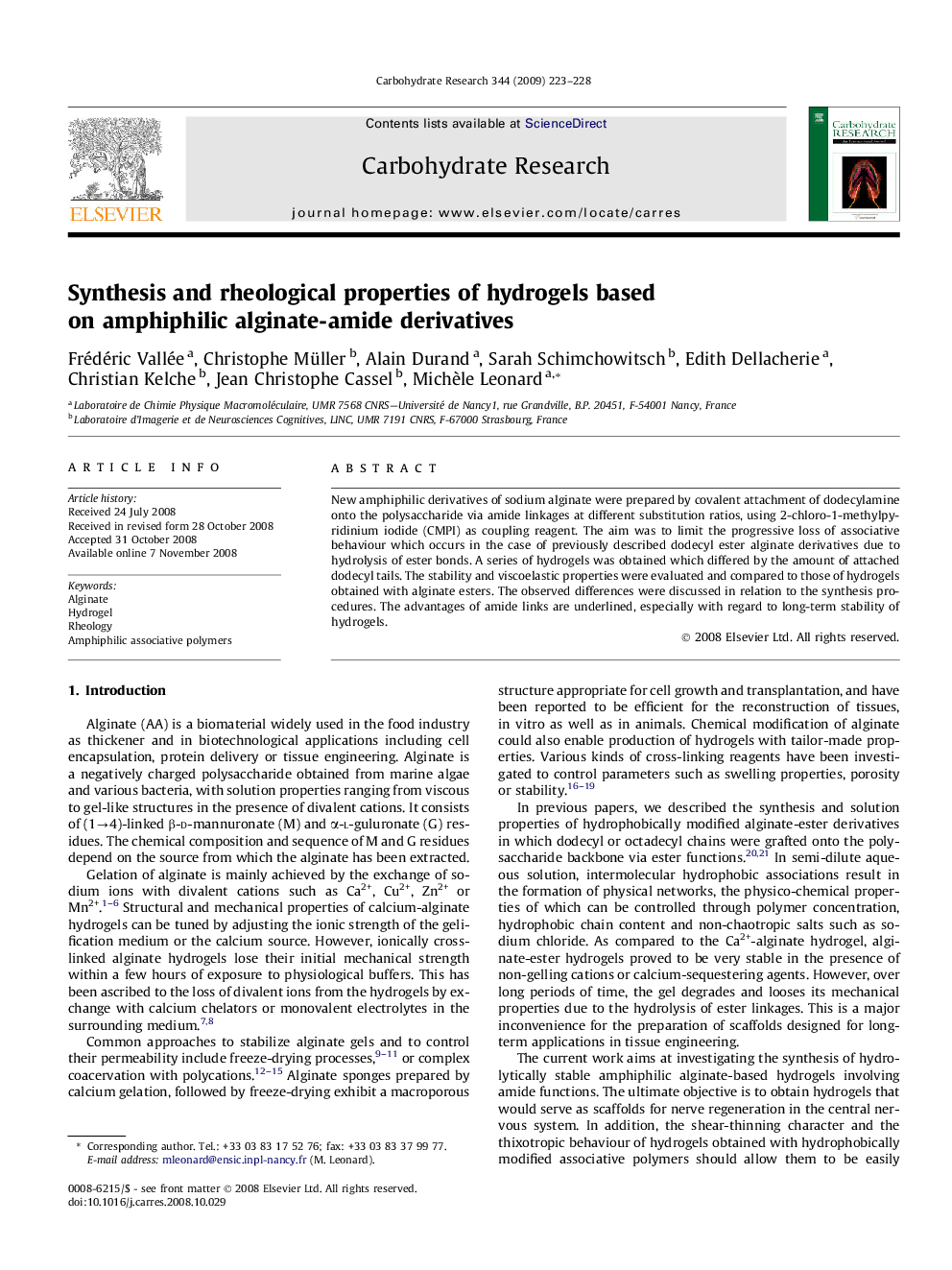| Article ID | Journal | Published Year | Pages | File Type |
|---|---|---|---|---|
| 1388944 | Carbohydrate Research | 2009 | 6 Pages |
New amphiphilic derivatives of sodium alginate were prepared by covalent attachment of dodecylamine onto the polysaccharide via amide linkages at different substitution ratios, using 2-chloro-1-methylpyridinium iodide (CMPI) as coupling reagent. The aim was to limit the progressive loss of associative behaviour which occurs in the case of previously described dodecyl ester alginate derivatives due to hydrolysis of ester bonds. A series of hydrogels was obtained which differed by the amount of attached dodecyl tails. The stability and viscoelastic properties were evaluated and compared to those of hydrogels obtained with alginate esters. The observed differences were discussed in relation to the synthesis procedures. The advantages of amide links are underlined, especially with regard to long-term stability of hydrogels.
Graphical abstractThe properties of amphiphilic ester and amide derivatives of alginate are determined and compared in terms of solubility and stability towards hydrolysis and rheological behaviour.
